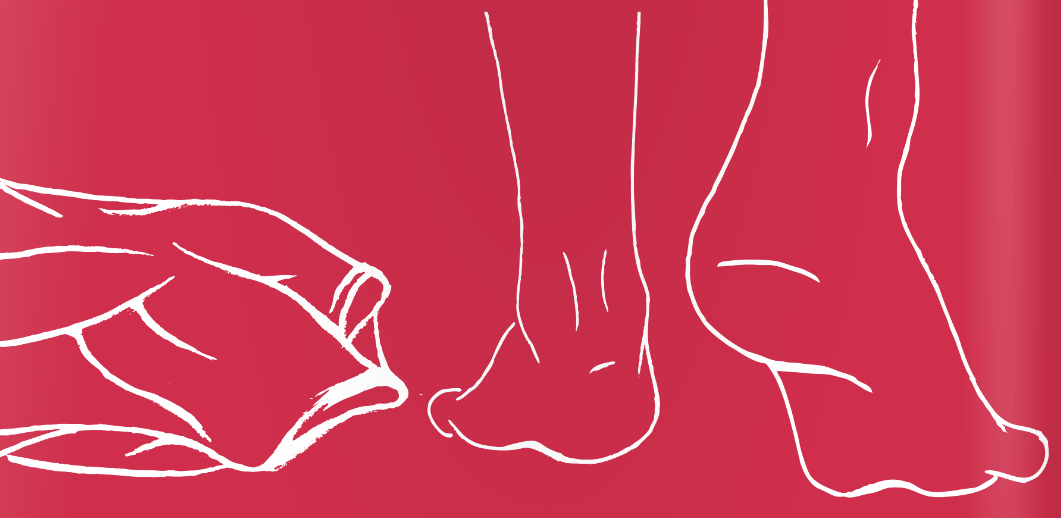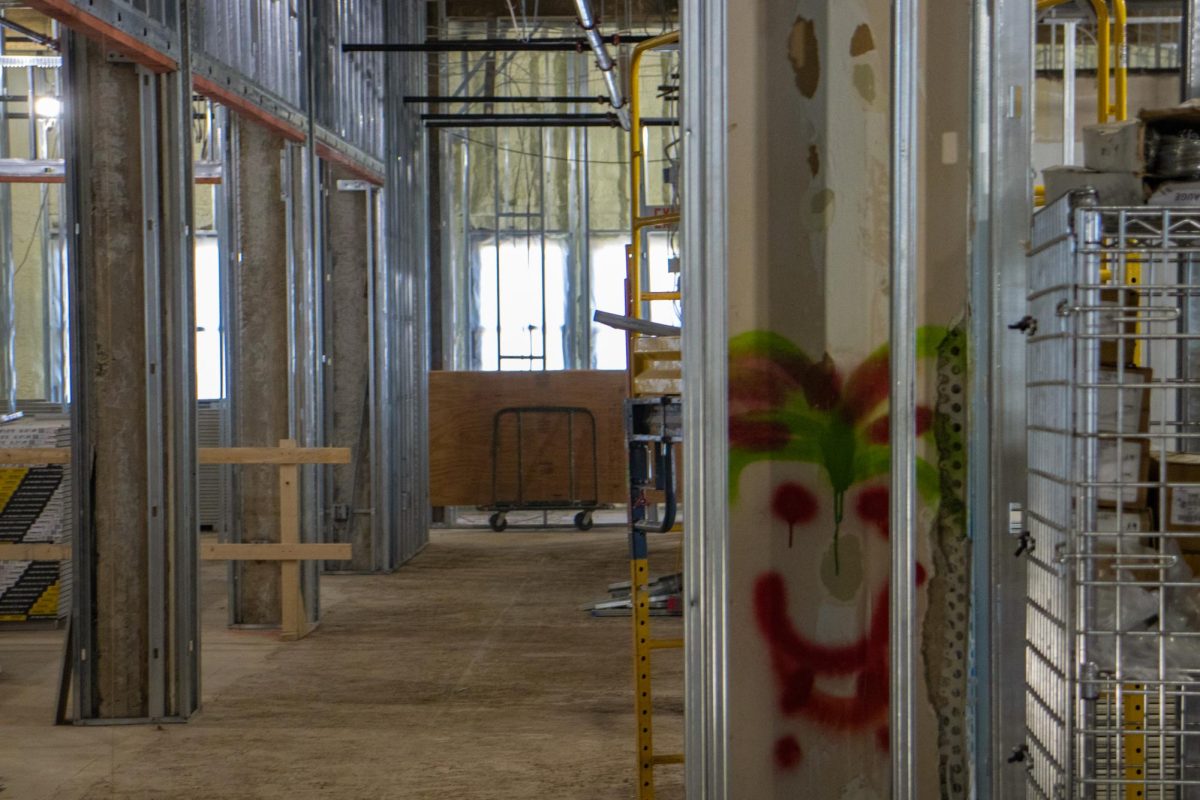Undressing insecurities
September 15, 2015
This was the gist of my conversation with Casey, my fellow AWOL editor, the night before we visited Pine Tree Nudist Resort in Crownsville, Maryland. It’s 96 acres of clothing-free family fun, so we weren’t just talking about armpits and legs. We were going to bare all in the name of journalism.
Inside Pine Tree
After entering through the tall gates, we pulled into the resort: Casey, two of my roommates, and me. Seconds later, several people strolled in front of the car, wearing nothing but towels slung over their shoulders.
Thirty minutes later, we too were naked. My roommate, Matt Meyers, a junior at American University, summed up the experience the best:
“When we were getting undressed, there was in my mind a drumroll, and then I pulled my pants down and the music stopped and nothing happened,” he said. “No neon sign pointing at me, there’s no camera—if anything, it made me less out of the ordinary.”
After we stripped, Valerie, a cheerful middle-aged woman, who has been frequenting the resort since 1996, led us on a quick tour. Because of the taboo surrounding nudism, it’s common for people to refer to themselves by first names only, to avoid being associated with the stigma.
Valerie gave us a brief overview—Pine Tree is one of the oldest nudist clubs in the United States, featuring several pools, a hot tub, tennis courts, recreational facilities, nature trails and 285 plots to pitch a tent or trailer. Then she set us loose to enjoy the day.
With our towels in tow, that’s what we set out to do.
“It felt like a day at the country club, to be completely honest,” Meyers said. “I hung out by the pool; I read “Game of Thrones;” I sat in the hot tub; I ate a cheeseburger and potato salad and watched the Ravens game. I think that in itself is really neat—that it didn’t impact me. I didn’t get what the fuss was about.”
Body Image
In 2008, the Ypartnership/Yankelovich National Leisure Travel Monitor released a survey stating that one in 10 Americans would consider staying at a nude or clothing-optional resort very or extremely desirable. The nude recreation industry itself had grown to nearly $4.5 million by 2010, according to the American Association for Nude Recreation.
Still, many adults in the United States are dissatisfied with how they look. A 2006 study of 52,677 adults reported that 41 percent of men and 61 percent of women thought that they were too fat, and 11 percent of men and 16 percent of women felt unattractive, some to the point where they wouldn’t even wear a bathing suit in public.
However, according to Katherine Frank, a scholar in residence in AU’s Department of Sociology, self-consciousness is not new.
“People have always altered their bodies and been concerned about how they look,” she said, citing competition for resources and mates as the main reasons why people often want to appear attractive.
At Pine Tree, appearance is not a priority. “When I’m here it’s more about meeting the characters here, the personalities,” said Chris, who recently joined the club as a lifeguard. And there certainly are plenty of characters—Valerie says that members come from all walks of life, from government workers to priests, teachers to military personnel.
“There’s nothing that really unites us except nudism,” Valerie said. Yet, that is often enough for friendships to blossom. Nudism creates an atmosphere that she says can teach children, to be more comfortable with themselves and less judgmental.
“I think we raise extraordinarily relaxed people here,” she said. And, just maybe, a little of that easygoing attitude rubs off on visitors.
“I think what surprised me most was how they made me act,” remarked Jordan Halsey, the fourth member of our group. “I can be a little judgmental and I found that I wasn’t doing that there. I wasn’t judging anyone. It really was just like, ‘This is what everybody looks like.’”
Dying to be thin
Unfortunately, most of America is not quite as open-minded, as mainstream media and big businesses promote a distinctly thin, Westernized body ideal. Celebrities often fall victim to this ideal, male and female alike. Meyers points to Hollywood actor Chris Pratt as just one example.
“When [Pratt] was about to do “Guardians of the Galaxy” he had to drop a ton of weight and gain muscle,” he said. “When he was playing the bumbling oaf on Parks and Rec[reation] he was allowed to be chubby, but when he got the leading role he had to be fit.”
This fixation on looking good can have detrimental impacts. According to the National Association of Anorexia Nervosa and Associated Disorders, nearly 24 million people in the U.S. suffer from an eating disorder. Among mental illnesses, eating disorders have the highest mortality rate: four percent of of people with anorexia will die from the disorder, 3.9 percent for bulimia and 5.2 percent for other disorders.
In a world where we are increasingly being force fed obesity statistics and suggestions for better eating and exercising strategies, the National Eating Disorder Association has even identified a new threat—“orthorexia nervosa,” or “a fixation on righteous eating.” People suffering from orthorexia often become obsessed with the quantity and quality of food intake, punishing slip-ups with fasting, excessive exercise or stricter eating. Many fad diets have accompanied the rise of orthorexia, from the classic cutting of carbohydrates to the more extreme “paleo” diet where people try to follow a “prehistoric” diet full of meat and fat. But even the diets that seem healthy on the surface are often doomed to fail.
“I always like to say if you go on a diet, that means that at some point you’ll probably go off a diet,” said Jolynn Gardner, director of the Public Health Program at AU. “There are lots of problems with these fad diets. Some of them are nutritionally deficient. Most of them require behaviors and purchasing of special foods that can’t be sustained over a long period of time, and they are harmful and not grounded in good science.”
Nudity ≠ Sexuality
Even those comfortable enough with their bodies to join a nudist organization can’t quite escape the social stigma.
“I don’t tell anyone,” said Steph, who has been coming to Pine Tree her whole life. “To me, it’s always been my secret. I didn’t want people to take it the wrong way.”
She says she hasn’t even told her boyfriend, who she has been dating for over a year. Steph isn’t alone. Many nudists chose not to reveal their pastime to others because of people’s tendency to “take it the wrong way.”
“I guess in my mind, ‘naked’ was always associated with ‘sex’,” said Paige Rammelkamp, a junior at AU. “My mom always made my dad wear a shirt, even when he was mowing the lawn and it was a hundred degrees out. It’s almost like you’re taught to be embarrassed.”
“People think that just because you’re naked, you’re sexual, and that’s not true,” said Valerie, on the patio outside her mobile home. “We meet people in our lives all the time that you think are handsome or pretty or sexy, but you don’t act on it—it’s the same when you are naked.”
Later, Chris, the lifeguard, put it more bluntly. “Nudity is not as sexy as women wearing a thong or a lacy bra,” he said. “That’s the only time that I would be excited.” True to his word, he and Steph, both in their early twenties, looked perfectly at ease lounging side-by-side on the edge of the hot tub.
For many people, what he says rings true. And, according to Frank, back at AU, there’s a scientific reason for this—erotics, or literally “what turns you on.”
“People’s erotics can be based on what is being revealed, or what they think is being revealed, more than what is actually there,” she said. To conduct her anthropological research, Frank worked in a strip club, talking to patrons afterward in an effort to understand male desire.
“One of the things that I learned about was how imperfections became sort of erotic in the club because everybody could be nude, so it wasn’t just nudity that could really touch someone’s interest,” she said. “It would be a little stumble if she was new, or if she resembled the girl next door—these are things that the customers would tell me interested them.”
The Future
Though rapid social change may not be just around the corner, that doesn’t mean the future isn’t bright. Gardner, for example, sees hope in the same arena where body dissatisfaction had previously won battle after battle: pop culture.
“I’ve been encouraged, really encouraged, by a lot of the songs that you hear that are popular,” she said. “In many cases they talk about young women being happy with who they are and acknowledging that they aren’t perfect.”
Rammelkamp say she is also slowly beginning to see progress on television. Though she admits that she gets frustrated with shows that may not be as progressive as they could be, she concedes that sometimes, small steps are important, like sexual liberation in “Sex and the City,” diversity in “Modern Family.”
“We’re moving past the general acceptance of race, and sexuality, and then maybe body image will come after that,” Rammelkamp said. Of course, nothing fosters acceptance like a visit to your friendly neighborhood nudist resort. Pine Tree even offers an $8 visitation deal for students who want a relaxing getaway from the stress of college.
And why not go skinny-dipping in a socially acceptable setting, among people who reflect humanity’s diversity? Why not let the girls bask in the sun for the first time, or let the boys hang free? Why not let go of thr stigmas that constantly surround?
“We have learned to be ashamed about our bodies,” Valerie told us at the start of the day, when we still took care to avoid looking at each other. “What’s precious about you is what’s inside of you, not what’s hanging on the outside.”



